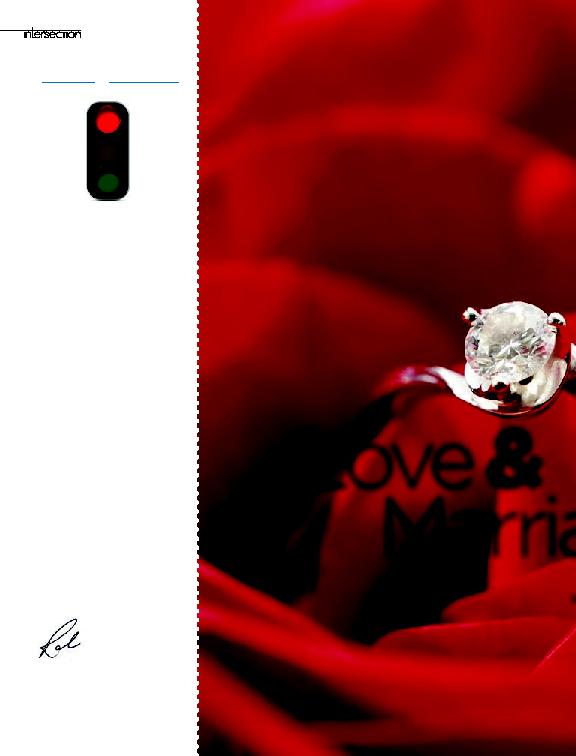
tional at weddings, but they describe love in a way that is totally
different from what the words were meant to describe. It seems
disingenuous to use traditional words in traditional ways, when
years ago, not to mention that modern marriage is an entirely different institu-
tion from what is described in the Bible, particularly Paul's description in his bib-
lical letters.
assumed that when Paul discusses love in 1 Corinthians 13, for example, he is
describing what happens between two people when they fall in love, and as
such, it makes sense to read those words at a wedding.
irritable or resentful; it does not rejoice in wrongdoing
but rejoices in truth," Paul isn't talking about "love" as we
know it today � think about those words � do they de-
scribe the typical marriage to you? Does it
even resemble falling in love? Who's re-
ally patient in waiting for love?
love that's attain-
able or sustainable
in a marriage by
human effort. They
set an unreason-
able expectation
for what happens
within a marriage,
and the unprepared newlyweds seem
blindsided once the honeymoon is
over. When Paul discusses marriage in
the Bible, love is not mentioned. Let
that sink in: in the
ered insanity and not something on which to base such an important decision as
whom to marry.
about marriage: "Those who marry will experience distress in this life" (1 Cor.
7:29). Honestly, that's more accurate to what marriage actually is, and that's the
beauty that a wedding celebrates.
asking the same question � people
facing scorned or unrequited love
often view the month of February
with chagrin or hopelessness.
tion in this issue with our feature article,
"Love and Marriage." Using a familiar
passage of Scripture heard often at
weddings, Cara Rockhill addresses the
intersection of love and marriage from a
slightly different angle. Perhaps there's
something more to marriage than fairy
tale weddings and starry-eyed brides...
DuBois' new book, The President's
Devotional. As President Obama's
"pastor-in-chief," DuBois sent the
president an email every morning
that contained a short devotional
thought and a Scripture reference.
We think that this book can offer
something to every reader.
month for you and if you need a spiritual
lift, then perhaps you can
oneymoon is
sses marriage in